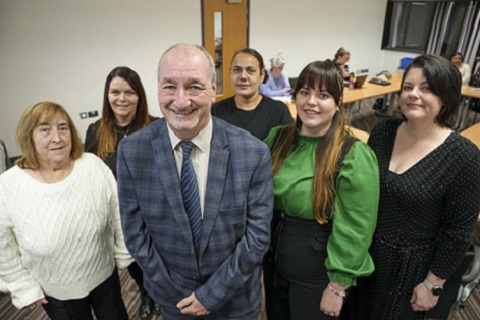The COVID-19 pandemic reminded the world that infectious diseases respect no borders. For 75 years, the WHO (World Health Organisation) has directed and coordinated international health work.
“The United States believes that multilateralism, the United Nations, the World Health Organisation are essential — not just as an effective international COVID-19 health and humanitarian response, but also building stronger global health capacity and security for the future,” U.S. Secretary of State Antony Blinken said.
With more than 750 million confirmed cases of COVID-19 and more than 6 million related deaths worldwide, COVID-19 was a wake-up call to the entire world about the importance of coordination and cooperation, prevention, preparedness and response. The United States is negotiating changes to strengthen the International Health Regulations to make them more precise and help better prepare for, prevent, detect and respond to potential health emergencies and pandemic health threats at their source.
The United States is also participating in negotiations with the WHO on an accord on pandemic prevention, preparedness and response. This accord is in the early stages of development as WHO member states aim for a world where pandemics are effectively prevented, prepared for and responded to in order to protect present and future generations from pandemics and their devastating consequences.
Among his first acts in office, President Biden declared the United States would re-engage with the WHO, highlighting the United States’ commitment to advancing multilateral cooperation in a time of international health crisis. The United States will continue partnering with the WHO to demonstrate global, inclusive leadership as a way to help ensure healthy lives and help promote well-being for all.
Strengthening global health security means improving preparedness financing and early warning systems for detecting diseases, as well as speeding up production and distribution of vaccines, personal protective equipment and tests, Blinken said. The United States has already pledged $450 million toward a new pandemic fund that the World Bank and WHO are putting together, Blinken said at the fourth and final COVID-19 Global Action Plan Ministerial he commissioned in February.
In addition to the WHO, the United States contributes to the U.S. President’s Emergency Plan for AIDS Relief, COVAX and many other efforts, making it the largest contributor to global health response in the world. For more than 70 years, the United Nations has grown in scope, purpose and impact, and the number of other international organisations has grown to meet the evolving demands of our time.
The United States will continue to be at the table and actively engaged in international organisations, cooperating with other countries to tackle the world’s most pressing challenges. “America is back,” Biden said. “We believe in the United Nations and its value.”











